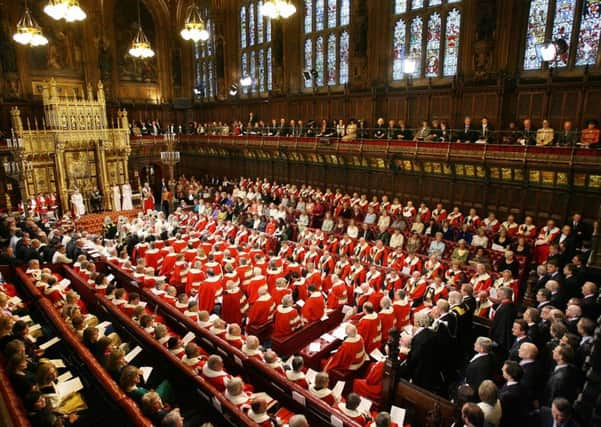Dr Jasper Kenter: Get rid of MPs and let the public make laws


Argyll, where I live, is a semi-marginal seat held by the SNP with a small chance of turning Lib Dem. Regardless of how people vote, this will have little influence on the next UK government, as Labour have indicated they will not go into government with the SNP, and the Lib Dems say they will not prop up anyone.
To me, born in the Netherlands, these are bizarre statements. What’s the point of a political party that refuses to take office?
Advertisement
Hide AdAdvertisement
Hide AdIn Holland, there have been three months of negotiations to form a coalition. The old government still runs the place but does not develop new policy.
Nobody thinks this is an issue – it isn’t. Rarely do parties exclude each other as potential partners and rarely are opposing politicians as vicious with each other as they are in the UK. Smaller parties mean internal politics are less nefarious. Coalition agreements mean ministers can get on with their jobs without being threatened by reshuffles. They are even expected to have expertise relevant to their post.
Yet, proportional representation faces the same issues as first past the post: policies in the long-term interest of society are hard to sell because of short-term impacts. This is exacerbated by the commercial and political interests of media, with power to sway opinion by triggering fear, anger and envy, deluding people into thinking the extraordinary is more common.
For example, air pollution leads to 40,000 deaths a year, far more than terrorism and homicide. Addressing this would require policy overhauls and investment opposed by powerful lobbies, so we stick our heads in the sand.
Another example: preserving healthy ecosystems is the most important thing we can do for future generations – but the UK’s environment department has had more severe cuts than any other, with barely anyone noticing.
There is a solution: replace MPs with randomly selected citizens called up for parliamentary duty, a system called sortition. Imagine parliament being a true reflection of the public, with mothers and teachers thinking through education and childcare, health workers influencing how to run and fund the NHS. MPs would be independent of wealthy donors and no need to be popular, so would be better at making difficult decisions.
They would be supported by an office providing independent expertise, like the current Parliamentary Office for Science and Technology. By changing a third of MPs at a time, experience could be passed on.
In Scotland, there is an ideal opportunity to try sortition: Holyrood does not have a second chamber and, regardless of Indyref2, will receive more powers after Brexit, so arguably needs one.
Advertisement
Hide AdAdvertisement
Hide AdIn Westminster, the House of Lords is in urgent need of a reboot. Perhaps we should all have a chance at being a Lord.
Dr Jasper Kenter is principal investigator in ecological economics at the Scottish Association for Marine Science and Honorary Fellow of the University of Edinburgh.